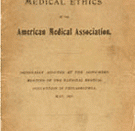Your Money or Your Life
In this paper it is our intention to examine the legal, ethical and financial issues surrounding the controversial topic of organ donation. We will examine both the current organ donation system and proposed new alternatives to increase the supply of organs available for transplant. Specifically, we will discuss the possibility of using the organs from death row inmates and paying individuals to donate their organs. We hope to bring these issues to the public in a fresh new perspective while also informing the public of the desperate need for human organs.
The demand for human organs and tissue vastly outnumber the viable sources that are available today. Not only is there an organ shortage, but our research indicates a gender bias towards organ donation. In an independent poll taken by the research team of McCullough, Miller & Vargha, data indicated a disproportionate amount of identified organ donors were male.
Sixty-seven percent of males surveyed were current organ donors compared to only thirty-five percent of their female counterparts (McCullough, Miller & Vargha, organ donor survey interviews, September 23, 2002).
Currently there is high demand for all six of the human organs that can be donated. These organs include the kidneys, heart, liver, lungs, pancreas, and the small intestines (The Living Bank, 2002). With the demand for organs also comes the demand for human tissue. These tissues can include, but are in no way limited to, the cornea, bone, saphenous veins, heart valves and skin. In terms of the number of people awaiting organ and tissue transplant, the kidneys and cornea are in highest demand, but in terms of life saving ability, the heart, lungs and liver are the most needed. (Gift of Hope [GH], 2002)
As of July 26, 2002, the United Network for Organ Sharing...



Organ donation
this is a fascinating and well-sourced piece.
I know in England there are a lot of people who just dont think to get a donor card. There is now talk of assuming everyone to be a potential donor unless they specifically make the decision on whatever grounds to register against this. But as I say this is just talk
4 out of 4 people found this comment useful.